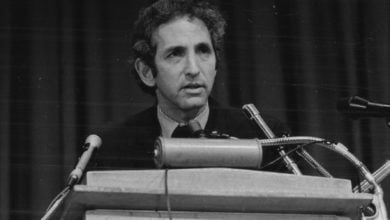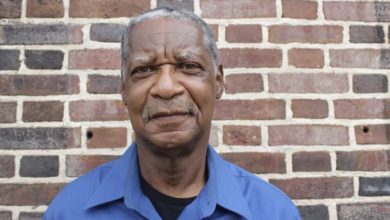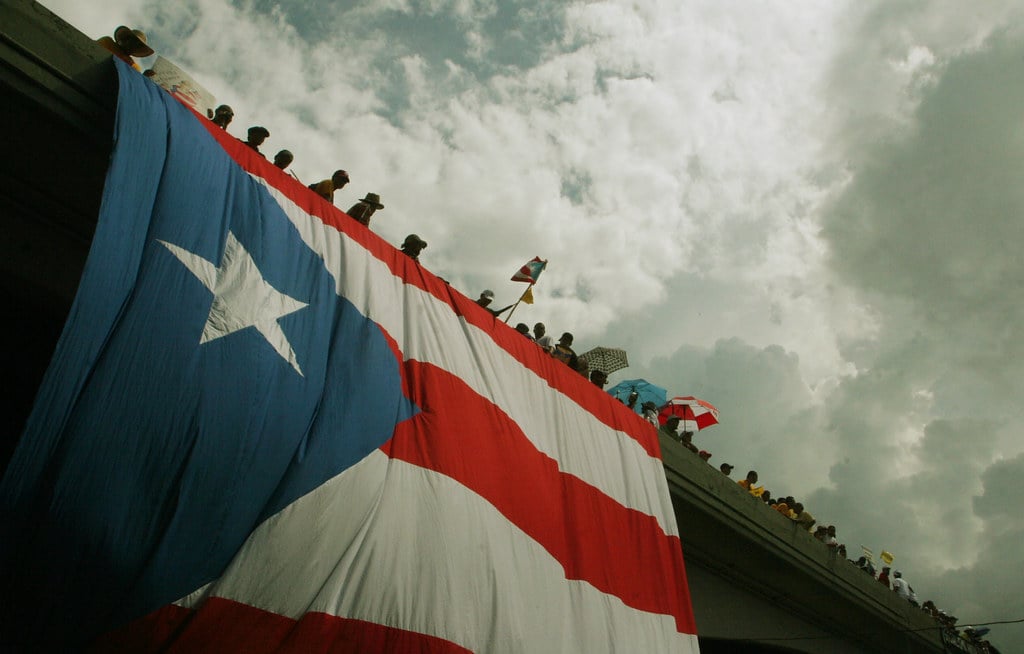Jorge Farinacci García, the spokesperson for Puerto Rico’s Socialist Front and lifelong independence and socialist leader, died on Aug. 26 of health complications after suffering lymphoma in the brain, which he battled for several months. He was 56 years old.
 Farinacci (right) on trial with his friend and comrade Filiberto Ojeda Rios. |
Farinacci began his political career in college while attending the University of Puerto Rico in the 1960s. He became a member of the Federation of Pro-Independence Students (FUPI) and was active in the struggles against the military draft and to remove the ROTC from campus. Puerto Ricans, under colonial occupation, were being drafted into the U.S. military and sent to fight in Vietnam.
He also took part in movements opposing the 1965 U.S. invasion of the Dominican Republic and stood in solidarity with the Cuban revolution.
In 1973, Farinacci graduated from law school and embarked on a career of providing legal representation for the labor movement. He represented healthcare workers, water authority workers and the Teamsters union, among others.
In 1978, he founded the Marxist journal Pensamiento Crítico (Critical Thought) along with other colleagues. The journal is one of several Marxist theoretical journals still read throughout Puerto Rico.
The Macheteros and the Wells Fargo robbery
In 1985, Farinacci came face to face with the U.S. “justice” system from a different angle—this time not as a lawyer, but as a defendant. He was arrested on charges of assisting the spectacular 1983 heist of over $7 million from a Wells Fargo facility in Hartford, Conn. The Boricua People’s ArmyMacheteros ultimately claimed responsibility for the heist, which helped finance the Puerto Rican independence movement and other revolutionary movements in Latin America.
Farinacci was found guilty of conspiracy and illegal interstate transportation of stolen money. He served five years in U.S. prisons for those charges, one of the Hartford 16. Another of the defendants was Filiberto Ojeda Ríos, who the FBI assassinated in a raid on Sept. 23, 2005.
Speaking of the Hartford 16 case, Farinacci said, “We have to expose in the courts, with the people of Puerto Rico and the people of the U.S. that we are not guilty of what we are accused of. We understand that the Puerto Rican militants, the activists and the fighters for independence cannot be guilty of anything when they are fighting for their independence. We want to denounce the colonial character of U.S. and Puerto Rico relations, show how we have been subjects to U.S. oppression and exploitation, in its role of colonial master for the past 100 years. This will help us show the world the true face of colonialism, which is the same face of totalitarianism and definitely not the face of democracy.”
The founding of the Socialist Front
After serving his sentence, Farinacci emerged as a leader of the Puerto Rican Workers Revolutionary Party—Macheteros. He joined other forces in founding the Socialist Front of Puerto Rico in November of 1990. The Socialist Front is a coalition of Marxist and socialist organizations, currently made up of the Puerto Rican Worker’s Revolutionary Party—Macheteros, Communist Refoundation, and Political Formation Workshop.
 |
The reconstruction of a socialist movement at the time of the collapse of the Soviet Union was certainly a difficult task. On the occasion of the 150th anniversary of the Communist Manifesto, Farinacci wrote, “We have a great crisis with the collapse of the Soviet Union. But we have to understand the important and strategic role of Cuba. When everyone was distancing themselves from socialism like a stampede, when many organizations, intellectuals and movements renounced socialism and changed their postures, talked about postmodern ideals and said the class struggle and working class were things of the past, Cuba was there for all of us.”
Vieques and the independence struggle
In 1999, after the killing of David Sanes in Vieques by an errant U.S. bomb, Farinacci and his comrades in the Socialist Front worked closely with the Committee for the Rescue and Development of Vieques and other grassroots organizations to carry out a series of civil disobedience actions against the U.S. Navy in Vieques. These actions later grew into a mass popular movement—ultimately victorious—to evict the U.S. Navy from Vieques, which used the island as a firing range and weapons testing ground.
During that mass struggle some progressive forces tried to avoid the question of Puerto Rican independence for fear that it could “split” the Vieques movement—in particular, orienting toward the pro-colonial Puerto Rican People’s Party. Farinacci and the Socialist Front, on the other hand, always stressed that Puerto Rico’s colonial status was directly responsible for the conditions in Vieques. He tried to use every struggle, like the 1998 “people’s strike” against privatizing Puerto Rico’s telephone company, to expose the need for independence and socialism.
Last years of activism
In his final years, Farinacci led a campaign in support of Dominican and Haitian immigrants in Puerto Rico. He demanded respect and equal rights for these workers, who faced long-standing discrimination and social ostracism. Again, Farinacci stood out from many otherwise progressive politicians and activists who distanced themselves from that struggle.
Farinacci played a leading role in the protests after the FBI assassinated his comrade and friend Filiberto Ojeda Rios. Ojeda Ríos—the leader of the Boricua People’s Army-Macheteros—fled from authorities in 1983 as he awaited trial on charges related to the Wells Fargo heist. He had been living in secret ever since.
The FBI chose Sept. 23, the Puerto Rican independence holiday known as El Grito de Lares, to kill the independence leader. After the attack, Farinacci helped to mobilize thousands in an effort to demand justice for his fallen comrade.
Less than a year later, Farinacci succumbed to cancer. In his last months, Farinacci worked as long as he could and continued his role in labor negotiations despite his illness.
At his funeral, Farinacci’s comrades carried his casket wearing red shirts in honor of his lifelong goal: a socialist revolution.





